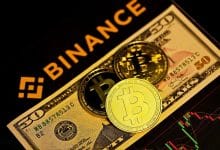Why Investors Spend Millions on Virtual Real Estate

Designer furniture, floor-to-ceiling windows, sun terrace, infinity pool – a few weeks ago, the Mars House luxury estate was sold for more than half a million US dollars.
A bargain, one might think, given the rising prices on the real estate market. But the house does not exist physically, but purely digitally.
You can only walk through it in augmented or virtual reality. The buyer has not been sent a key, but only a digital 3D folder.
The virtual property is also not registered in the land register but is securitized via a “non-fungible token” (NFT) – a forgery-proof certificate stored on a blockchain.
Hype Around Crypto Art
Since the beginning of this eventful decade, there have been several technological additions to our daily lives that are making waves.
On the one hand, we are faced with NFTs and on the other the extensive use of crypto trading bot software that handles much of the day-to-day trading on the major exchange platforms. All this has brought the real estate world into the virtual world.
Since a digital painting sold for $69 million at Christie’s auction house in New York last March, hype around crypto art has erupted in the market worldwide.
Trading cards, sneakers, sofas – there is hardly an object that has not yet been sold as NFT. Even a security hole has already been auctioned off as a token. But buyers are also increasingly targeting virtual properties and houses.
Last year, the digital real estate fund Republic Realm acquired a property in the online game Decentraland with an area of around 66,000 virtual square meters for the equivalent of $900,000.
Decentraland is a virtual world where users visit different places with their avatars and interact with other gamers. For example, they can gamble in casinos with cryptocurrencies.
The auction house Sotheby’s recently opened its own virtual gallery in the game’s posh Voltaire Art District.
Shopping for the Avatar
Second Life has been an online game for several years now, in which users can go shopping with their avatars using their own currency (Linden dollars).
Houses, gardens, castles, office buildings – with the necessary small change, you can buy anything, provided you have land.
At its peak in 2007, when the game had more than a million users, the candidates in the French presidential election campaign were canvassing for votes.
On the “Ile Sarkozy,” campaign workers handed out virtual pizza slices and T-shirts between sun loungers and tanned avatars.
Land Prices Rise
Last February, nine properties in the computer game “Axie Infinity” were sold for the equivalent of $1.5 million in the cryptocurrency Ethereum.
The digital real estate market is booming. Buyers are willing to spend more and more money on houses and land. As a result, land prices keep rising.
In the virtual world “Cryptovoxels“, the prices for a plot of land quadrupled in 2021 compared to the previous year. The virtual real estate industry is highly professionalized.
For example, Republic Realm develops its own construction projects in the digital world in cooperation with architects. Luxury apartments, private islands, shopping malls – on the website, you can click through the offers just like at a real estate agency.
Gambling Around the Eiffel Tower
On the Super World platform, interested parties can even purchase landmarks: Taj Mahal, Golden Gate Bridge, Eiffel Tower – for 0.1 Ether (the equivalent of $160), you are the owner of the token.
The question is, of course, whether this rights management will be recognized. What is the point of a property rights card if the monument expires? Why spend so much money on a property that you can’t even live in?
The answer is obvious: virtual real estate is a speculative object that promises high returns on the metaverse in 2022. Investors buy virtual houses and land in the hope of reselling them at a later date at high profits.
And to some extent, they are succeeding. For example, a crypto investor in “Axie Infinity” recently sold a property he bought a year ago for $300 for $28,000 – a profit of 9,200%.
Attractive Investment?
However, experts warn that these investments are highly risky. Back in 2010, the technology magazine Wired wrote of a bubble in the virtual real estate market. At that time, 567 million dollars were turned over in “Second Life” alone.
As a result of the crypto boom, completely different sums are now in circulation. The danger of the bubble bursting is increasing by the day.
Latest Thailand News
Follow The Thaiger on Google News:


























